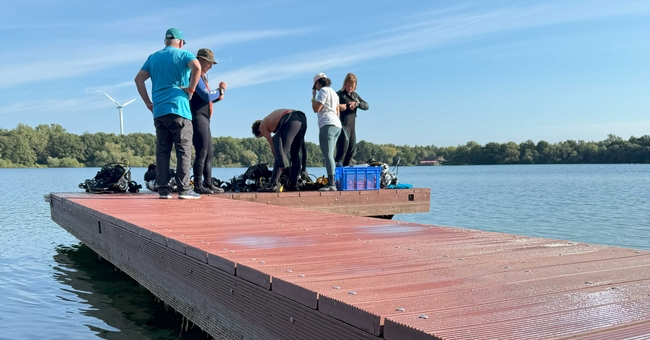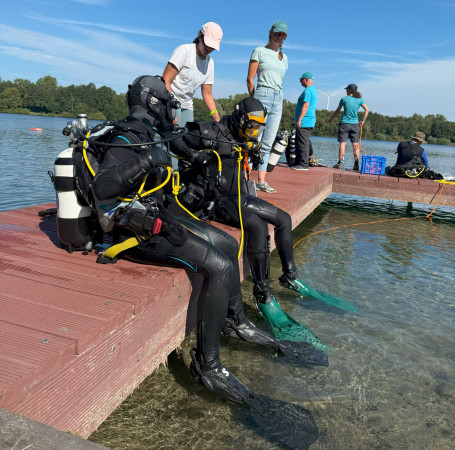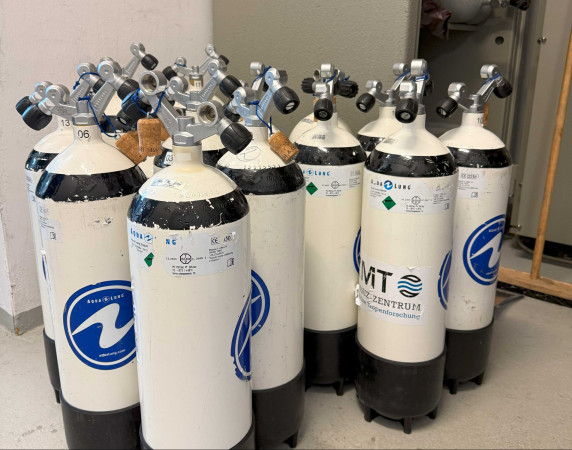A day of scientific diving at Bremen’s Stadtwaldsee
Black tubs filled with wetsuits, masks and tools are stacked up on the shore of Bremen's lake “Stadtwaldsee”. Next to them are freshly filled compressed air tanks. Even before the first divers enter the water, there is a flurry of activity: checking, sorting, preparing.
The twelve participants train in teams of four. Each person takes on different roles in turn: mission diver and safety diver, line tender, dive mission leader. ‘Rather take your time, before rushing into it. Be quick, but don't hurry,’ calls out Konrad, one of the trainees before the group enters the water.
Two teams lay out 25 m transects – long measuring tapes along which samples are taken or assessments are made. The third team tries out manual work: sawing, drilling, screwing boards together underwater. It's an unfamiliar experience, because every movement is slowed down by the water. Anyone who uses the drill quickly realises that without a firm footing, you drift backwards. Underwater, every routine becomes a challenge.
Communication between diver and tender takes place via signal lines. Full-face masks to which cameras are attached are used to take videos that also help researchers who do not dive themselves. Research divers enable scientists to not only view their research sites from the surface, but also to experience the ecosystem directly – with all the details that equipment alone cannot capture.
The course is organized by the Scientific Diving Centre at ZMT, where five experienced colleagues – Dr. Michael Schmid, Dr. Andreas Kunzmann, Dr. Marleen Stuhr, Ulrich Pint, and Stefanie Bröhl – guide the participants step by step. This centre is one of only eight in Germany authorized to offer scientific diving training.
At the end stands the examination of the German Scientific Diving Commission. Those who pass are certified as “Certified Scientific Diver” under German regulations for health and safety at work and as “European Scientific Diver.”
Research diving opens the way to the underwater world, where data, samples and observations are collected directly. It is the key to truly understanding complex habitats such as seagrass beds or coral reefs – and at the same time one of the most demanding jobs in marine research.
Impressions of scientific diving at Stadtwaldsee



















